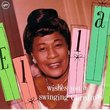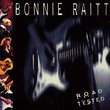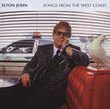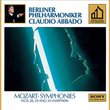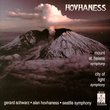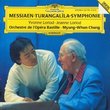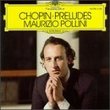| All Artists: Sir Edward Elgar, Sir Colin Davis, London Symphony Orchestra Title: Sir Edward Elgar: Symphony No. 2 - Sir Colin Davis / London Symphony Orchestra Members Wishing: 0 Total Copies: 0 Label: Lso Live UK Original Release Date: 1/1/2002 Re-Release Date: 5/14/2002 Album Type: Import, Live Genre: Classical Style: Symphonies Number of Discs: 1 SwapaCD Credits: 1 UPC: 822231101826 |
Search - Sir Edward Elgar, Sir Colin Davis, London Symphony Orchestra :: Sir Edward Elgar: Symphony No. 2 - Sir Colin Davis / London Symphony Orchestra
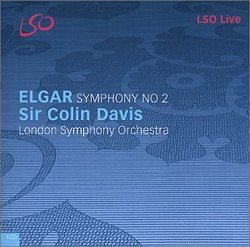 | Sir Edward Elgar, Sir Colin Davis, London Symphony Orchestra Sir Edward Elgar: Symphony No. 2 - Sir Colin Davis / London Symphony Orchestra Genre: Classical
Elgar's first symphony was an overnight sensation, establishing him as one of the leading composers of his time. His darker, more enigmatic, second symphony has always proved more elusive. Sir Colin Davis penetrates to the... more » |
Larger Image |
CD DetailsSynopsis
Album Description Elgar's first symphony was an overnight sensation, establishing him as one of the leading composers of his time. His darker, more enigmatic, second symphony has always proved more elusive. Sir Colin Davis penetrates to the heart of the composer's emotions in a truly revelatory recording. Similarly Requested CDs
|
CD ReviewsA perfect Second, with non-obbligato solo voice... MartinP | Nijmegen, The Netherlands | 12/26/2003 (5 out of 5 stars) "If you still think of Elgar as the epitome of staid Edwardian `Bürgertum', just listen to the horrifying middle part of this Symphony's Scherzo, and think again. Nor is there anything staid about the rest of the work, especially not in this top-of-the-bill recording. Its arguments are complex, and some of the themes somewhat heady, but the drama of it all is extremely gripping - less comfortable and easily digestible than the First, but in the end, to my ears, more rewarding. Highly original touches of instrumentation and harmonization enliven things further. Elgar has written some extraordinary string figuration in this symphony, and thankfully in this recording it registers clearly. The peculiar eerie moods he was able to conjure up in his late works are also in evidence - most of all when, as the composer himself phrased it, a malign influence wanders into the summer night in the garden of the first movement's second theme (it are these same haunting heaves and sighs that will return, with battering percussion, in the Scherzo). And Colin Davis knows how to gauge this atmosphere as hardly anybody before. He controls the constant ebb and flow of Elgar's (written in) rubati to perfection, and shades dynamics from the faintes pianissimo to the strongest forte. Rhythmic structure is kept in tight control however, so that the opening theme of the first Allegro immediately makes sense - it can easily sound garbled in lesser hands. Nor is he content to let the finale drift away on the pulse of its easy-going humming-tune: in this recording it is the dramatic peak of the work, its elegiac ending all the more touching for it. (Pity though that he did not include the organ pedal, as once suggested by Elgar, to underscore the final climax - Handley did, and to great effect). Articulation is equally precise: in the funeral march rhythm at the end of the slow movement, one can, for instance, actually hear that the quavers have a staccato dot and the semiquavers don't. As usual in this series the LSO plays with consummate skill and great musicality, and the recording is extremely dry but very clear and transparent. All in all, I would rank this version of the Symphony above the much lauded readings by Handley, Solti, Downes and Andrew Davis, which I'm all familiar with. It is for that reason alone that I am willing to put up with its one extra-musical flaw: Sir Colin's very audible presence. I never was a fan of live recordings, because of intrusive audience noise. Ironically however, the audience, no doubt spell-bound, produces no more than one very timid cough. The conductor on the other hand seems determined to make up for such vocal reticence. The first two movements especially are accompanied by a near continuous 'solo' part of sighs, grunts and off-key head voice humming, not to mention a very loud "Paahhh!!" just before the first movement's end. You might of course argue that it is all part of the thrill of real music-making - but I have just a few too many discs with real-music making and non-audible conductors to buy that. Usually this kind of thing is enough for me to discard a recording after a few hearings, but in this case the music making itself is so good that I actually found myself able, if not quite to hear through it, at least to put up with it as a small price to pay." Life Enhancing David Saemann | 06/02/2008 (5 out of 5 stars) "This is an unusually well engineered CD for the LSO Live series, given its recording locale in London's then unrefurbished Barbican Center. The sound is close up and exquisitely detailed. This has the disadvantage of capturing some rather off the cuff playing from the LSO, and Colin Davis's frequent vocalizations. I remember Davis saying that he was disappointed in one of his early heroes, Wilhelm Kempff, who refused to perform a second time with Davis because the conductor sang. You may feel on hearing this CD that Kempff had a point. The strongest parts of Davis's reading are in the quieter music. Almost anybody can bring off the big climactic parts of this work, but it takes great skill to weave together the softer strands of the piece, especially in the first movement. This is certainly one of my favorite recordings of the work, although if you can accept less than digital sound my preference would be for the 1964 Barbirolli version and Adrian Boult's first recording on 78s."
|

 Track Listings (4) - Disc #1
Track Listings (4) - Disc #1
